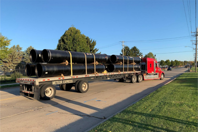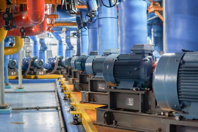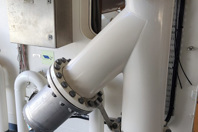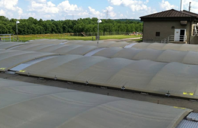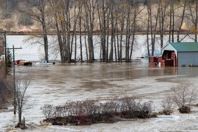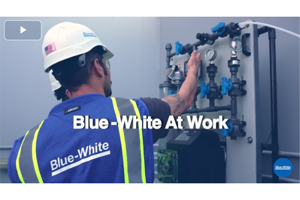WASTEWATER MANAGEMENT RESOURCES
-
U.S. Pipe supplies 34 miles of 30-inch ductile iron pipe for Waukesha’s Lake Michigan water project, delivering reliable, high-pressure infrastructure for generations of residents.
-
Water pumps are the quiet workhorses of manufacturing plants, as they support everything from cooling and boiler feed systems to handling wastewater and chemical processing. When water pumps run reliably, operations stay on schedule. However, when they fail, disruptions can quickly spread across an entire facility.
-
Emerging trends signal a new era of agility, ethics, and resilience for water professionals.
-
Fieldwork is at the heart of infrastructure expansion and rehabilitation, as utilities, engineers, and contractors collaborate to build the systems and structures that treat and move water. The opportunity is great, but so are the challenges. Which is why new, digitally-enhanced tools are needed.
-
The integration of IT and OT systems has unlocked significant benefits — from enhanced operational visibility to smarter decision-making — and reflects years of hard work and commitment to innovation. This progress is a foundation for the next phase: strengthening defenses in a rapidly changing threat landscape.
-
If AI can inform decisions, can it also help execute them? For the water sector, this distinction is not just semantic; it is the difference between a digital assistant that takes notes and a digital operator that turns valves.
-
Accurate low-level turbidity monitoring requires a deep understanding of detection limits and the variables affecting measurement sensitivity. Learn how refined laboratory techniques and standardized spiking protocols ensure precision in demanding water treatment applications.
-
For modern pipelines and pumps, noise and vibration behavior must be considered in system design. Learn how a wastewater pumping station in Greifswald, Germany reduced pump-induced pressure fluctuations by 90%, accompanied by lower vibration levels in the discharge line, with an innovative AI-enhanced damping system.
-
The South Dearborn Regional Sewer District in Lawrenceburg, Indiana, provides regional wastewater treatment services for three cities and an international distillery. The 6 mgd treatment plant is located in an area of high population growth and is surrounded by many retail operations and other commercial developments. In addition, a heavily traveled state highway runs by the treatment plant.
-
While many scientific and technical reports show that floods are becoming larger and more common, reports underestimate how their frequency is changing. Flood sizes get the spotlight, but governments and experts need to also consider their frequency to address implications overlooked by traditional management methods.

